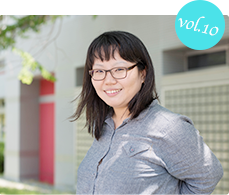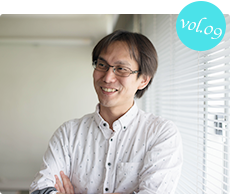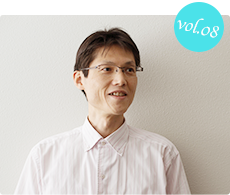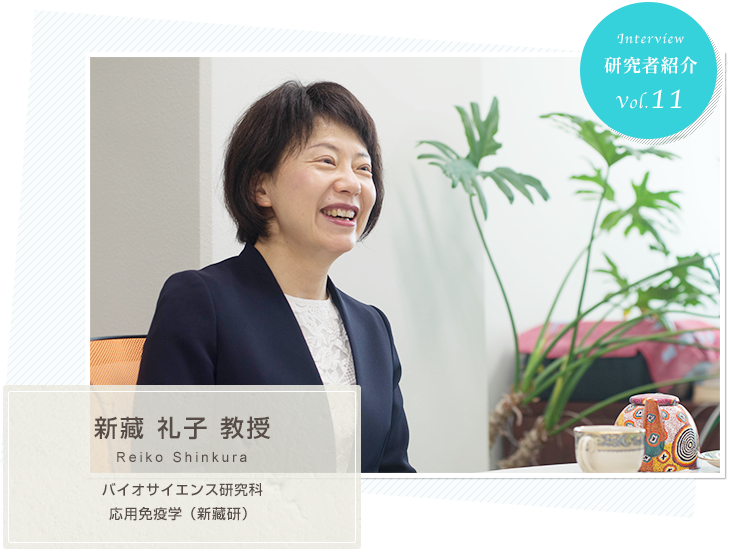
![]()
D. in Surgery, Graduate School of Medicine, Kyoto University. D. in Medicine. Her specialties are immunology and molecular biology.
Path to becoming a researcher
After graduating from medical school at Kyoto University, I got married at the age of 26 and had my first child at 27 and my second at 30. During this time, I worked as an anesthesiologist. Because of my husband's job as a surgeon, I worked in Kyushu after marriage, but I had always wanted to do research, so I took the university graduate school exam two months after giving birth to my second child, thinking that I would only get one chance in my life. I remember opening textbooks and studying during breaks at the hospital while I was pregnant. Then, six months after giving birth, I became a graduate student at Kyoto University. After completing the Ph.D. program, I worked as a postdoctoral fellow - associate professor at Kyoto University, studied in the U.S. during that time, worked as a professor at the Nagahama Institute of Bio-Science and Technology, and came to this university last year.
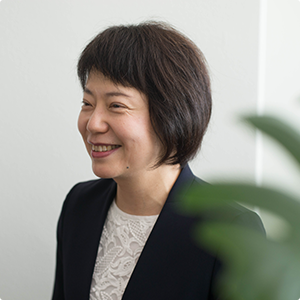
I am still grateful that when I returned to graduate school, my husband got a job in Kyoto and moved with me. I had been telling my husband for years that I wanted to return to graduate school, and I guess he didn't want to put it off any longer. My husband went to graduate school later than I did, but I am grateful for his decision at that time.
Since I was a child, I always wanted to be an explorer. For example, when you read a book about Snow White, you usually want to be a princess. But I was more interested in being a witch. I thought it would be fun to make something by shaking a flask like this. That's the kind of kid I was. So when I was in high school, I thought I would go into science instead of medicine. However, my father, who is still a doctor, advised me to study human beings before becoming a researcher so that my research would not have a negative effect on human beings, so I decided to go to medical school. I was not interested in studying for medical school and the national medical examination because it was mainly memorization, but after I became an anesthesiologist, I realized that it was an important job to protect patients' lives, and I earnestly tried to find ways to help patients wake up without pain.
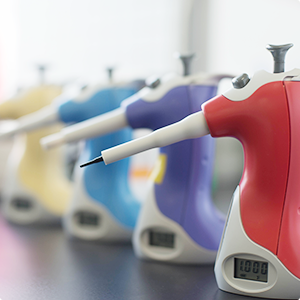
So I was not dissatisfied with my job, but with my curiosity... I thought it would be interesting to change anesthesia in this way, but you can't do that with real people. I wanted to do basic research that would allow me to pursue such questions to the end, so I decided to go into research after all. Since then, my curiosity about the genes that produce antibodies for immunity has continued.
Balancing work and childcare: An event that changed my understanding
When I started graduate school, my children went to a daycare center on campus. They were very helpful to me, so I decided to do something useful and became the president of the parents' association. While serving as president for several years, I also went to a national conference of day care centers. The many stories I heard there changed my perception of parenting.
The biggest one was when I went to a session on gender equality. There were fathers there. What they said made an impression on me was: "Women who are doctors, nurses or teachers have too much responsibility and think they have to solve everything at home and at work by themselves, which is wrong. It was not something for a woman to do alone, but for the father, who is also a member of the family, to do. That changed my thinking. Before that, I thought I had to do everything myself, like most women of my generation. But I realized my father was right.
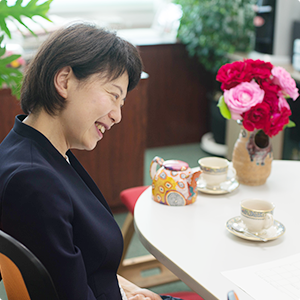
The fact that I studied in the USA for three and a half years after graduation only reinforced this perception. What I saw may have been a limited part of American society, but I felt that there was really no difference between men and women. A businessman in Boston was pushing a baby carriage to the daycare center without a care in the world. He said that was the way it should be. In Boston, when I was busy with work, my husband would pick up and drop off our children. Since then, I think it has been established that children are raised as a family, so both fathers and mothers should be involved, and those who can do the most should do the least. The lab members also understood that I had to go home early because of my child, and for example, they gave up their turn to make reservations for experimental equipment so that I could finish my work by 5 p.m. "I don't have a child," she said. He told me, "I don't have kids, so I can do it later, but you should do it first. I really appreciated that. All these years, when I gave the "help" signal, people around me understood what was going on and helped me. My family, lab members, and students have supported me in my research career. I would like to tell young people that "help" signals are nothing to be ashamed of.
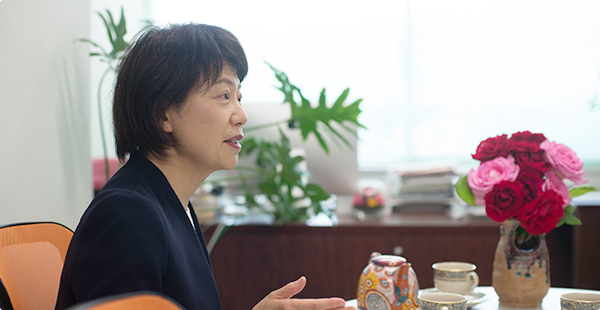
The most important thing I have always cared about is the health of children. The purpose of research is to cure diseases, but if my own child gets sick, I don't know what to do. That is why I tried not to harm the health of my children. My husband understood this very well, and we hired a babysitter as soon as our child was born. I paid more than my own salary for the babysitter and daycare, but it was my husband who supported me through it all. I think I was able to do this because my husband and I share the same goal of keeping our family healthy.
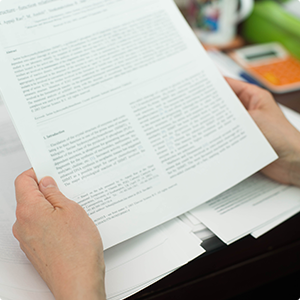
Support for researchers needed at NAIST
I would like to see a system that financially subsidizes the use of babysitters. In my experience, children are not physically strong, so it is best to let them rest at home as much as possible instead of taking them around. Currently, the support system for research assistants seems to be sufficient, but I think it is inadequate. I feel that this system was decided by male faculty members who have never raised children. Support needs to be tailored to the actual situation of young researchers who are raising children.
There is a part of research that you have to do yourself to believe in it. If I had a babysitter at home and could be entrusted with the connection time between daycare/school and home (about 30 minutes), I could complete the experiment to the point where I could see for myself. I would have the babysitter connect me to the babysitter without having to worry about the half hour or so of pickup time. That changes the research environment a lot. That was the case for me as I continued my research in biotechnology. Of course, everyone's situation is different, so ease of use is most important, and for that reason I think it would be good to have less restrictive financial support, such as a start-up research grant. Although it is very different from a research assistant hired within a university, I think a babysitter can be a tremendous research support for some people. Basically, raising children is something that couples do together, including financially, rather than relying on parents. If the university is going to provide support, there should be a system that can be used for something useful for the individual.
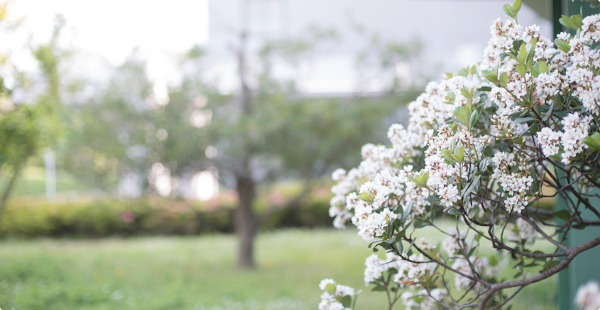
Division of Biological Science, Applied Immunology Laboratory(Shinkura Lab.)
(June, 2017)

-
2017.6 updated
Division of Information Science
-
2017.6 updated
Division of Biological Science
-
2017.6 updated
Division of Biological Science






